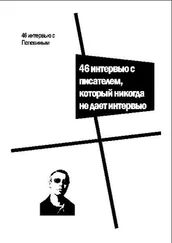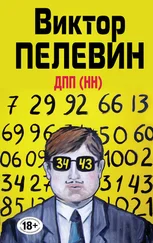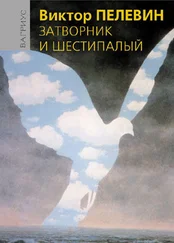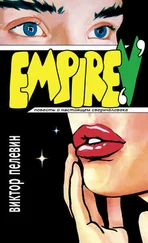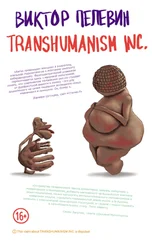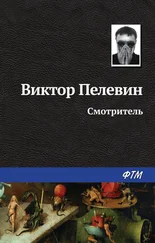Виктор Пелевин - Babylon
Здесь есть возможность читать онлайн «Виктор Пелевин - Babylon» весь текст электронной книги совершенно бесплатно (целиком полную версию без сокращений). В некоторых случаях можно слушать аудио, скачать через торрент в формате fb2 и присутствует краткое содержание. Жанр: Современная проза, на английском языке. Описание произведения, (предисловие) а так же отзывы посетителей доступны на портале библиотеки ЛибКат.
- Название:Babylon
- Автор:
- Жанр:
- Год:неизвестен
- ISBN:нет данных
- Рейтинг книги:5 / 5. Голосов: 1
-
Избранное:Добавить в избранное
- Отзывы:
-
Ваша оценка:
- 100
- 1
- 2
- 3
- 4
- 5
Babylon: краткое содержание, описание и аннотация
Предлагаем к чтению аннотацию, описание, краткое содержание или предисловие (зависит от того, что написал сам автор книги «Babylon»). Если вы не нашли необходимую информацию о книге — напишите в комментариях, мы постараемся отыскать её.
Babylon — читать онлайн бесплатно полную книгу (весь текст) целиком
Ниже представлен текст книги, разбитый по страницам. Система сохранения места последней прочитанной страницы, позволяет с удобством читать онлайн бесплатно книгу «Babylon», без необходимости каждый раз заново искать на чём Вы остановились. Поставьте закладку, и сможете в любой момент перейти на страницу, на которой закончили чтение.
Интервал:
Закладка:
Exactly what was the first thing that had to be taken into consideration was entirely unclear. The only association the word ‘Parliament’ was able, with a struggle, to extract from his brain, was Cromwell’s wars in England. The same thing would obviously apply to the average Russian consumer who had read Dumas as a child. After half an hour of the most intensive intellectual exertion had led to nothing, Tatarsky suddenly fancied a smoke. He searched the entire flat looking for something smokeable and eventually found an old pack of Soviet-time Yava. After just two drags he chucked the cigarette down the toilet and dashed over to the table. He’d come up with a text that at first glance looked to him as if it was the answer:
When he realised this was only a poor low-grade calque on the word ‘uncola’, he very nearly gave up. Then he had a sudden inspiration. The history dissertation he’d written in the Literary Institute was called: ‘A brief outline of parliamentarianism in Russia’. He couldn’t remember a thing about it any more, but he was absolutely certain it would contain enough material for three concepts, let alone one. Skipping up and down in his excitement, he set off along the corridor towards the built-in closet where he kept his old papers.
After searching for half an hour he realised he wasn’t going to find the dissertation, but somehow that didn’t worry him any more. While sorting through the accumulated strata deposited in the closet, up on the attic shelf he’d come across several objects that had been there since his schooldays: a bust of Lenin mutilated with a small camping axe (Tatarsky recalled how, in his fear of retribution following the execution, he’d hidden the bust in a place that was hard to reach), a notebook on social studies, filled with drawings of tanks and nuclear explosions, and several old books.
This all filled him with such aching nostalgia that his employer Pugin suddenly seemed repulsive and hateful, and was banished from consciousness, together with his Parliament.
Tatarsky remembered with a tender warmth how the books he had discovered had been selected from amongst the waste paper they used to be sent to collect after class. They included a volume of a left-wing French existentialist published in the sixties, a finely bound collection of articles on theoretical physics. Infinity and the Universe, and a loose-leaf binder with the word ‘Tikhamat’ written in large letters on the spine.
Tatarsky remembered the book Infinity and the Universe, but not the binder. He opened it and read the first page:
TIKHAMAT-2 The Earthly Sea Chronological Tables and Notes
The papers bound into the folder obviously dated from a pre-computer age. Tatarsky could recall heaps of samizdat books that had circulated in this format - two typed pages reduced to half-size and copied on a single sheet of paper. What he was holding in his hands seemed to be an appendix to a dissertation on the history of the ancient world. Tatarsky began remembering: in his childhood, he thought, he hadn’t even opened the file, taking the word ‘Tikhamat’ to mean something like a mixture of diamat (dialectical materialism) with histmat (historical materialism). He’d only taken the work at all because of the beautiful folder, and then he’d forgotten all about it.
As it turned out, however, Tikhamat was the name either of an ancient deity or of an ocean, or perhaps both at the same time. Tatarsky learned from a footnote that the word could be translated approximately as ‘Chaos’.
A lot of the space in the folder was taken up by tables of kings. They were pretty monotonous, with their listings of unpronounceable names and Roman numerals, and information about when they’d launched their campaigns or laid the foundations of a wall or taken some city, and so forth. In several places different sources were compared, and the conclusion drawn from the comparison was that several events that had been recorded in history as following each other were in fact one and the same event, which had so astounded contemporary and subsequent generations that its echo had been doubled and tripled, and then each echo had assumed a life of its own. It was clear from the apologetically triumphant tone adopted by the author that his discovery appeared to him to be quite revolutionary and even iconoclastic, which set Tatarsky pondering yet again on the vanity of all human endeavour. He didn’t experience even the slightest sense of shock at the fact that Ashuretilshamersituballistu II had turned out actually to be Nebuchadnezzar III, and the nameless historian’s depth of feeling really seemed rather laughable. The kings seemed rather laughable too: it wasn’t even known for certain whether they were people or simply slips made by a scribe on his clay tablets, and the only traces remaining of them were on those same clay tablets.
The chronological tables were followed by extensive notes on some unknown text, and there were a lot of photographs of various antiquities pasted into the folder. The second or third article that Tatarsky came across was entitled: ‘ Babylon: The Three Chaldean Riddles’. Beneath the letter ‘O’ in the word ‘Babylon’ he could make out a letter ‘E’ that had been whited out and corrected - it was nothing more than a typing error, but the sight of it threw Tatarsky into a state of agitation. The name he’d been given at birth and had rejected on reaching the age of maturity had returned to haunt him just at the moment when he’d completely forgotten the story he’d told his childhood friends about the part the secret lore of Babylon was to play in his life.
Below the heading there was a photograph of the impression of a seal - a gate of iron bars on the top of either a mountain or a stepped pyramid, and standing beside it a man with a beard dressed in a skirt, with something that looked like a shawl thrown over his shoulders. It seemed to Tatarsky that the man was holding two severed heads by their thin plaits of hair; but one of the heads had no facial features, while the second was smiling happily. Tatarsky read the inscription under the drawing: ‘A Chaldean with a mask and a mirror on a ziggurat’. He squatted on a pile of books removed from the closet and began reading the text beneath the photograph.
P. 123. The mirror and the mask are the ritual requisites of Ishtar. The canonical representation, which expresses the sacramental symbolism of her cult more fully, is of Ishtar in a gold mask, gazing into a mirror. Gold is the body of the goddess and its negative projection is the light of the stars. This has led several researchers to assume that the third ritual requisite of the goddess is the fly-agaric mushroom, the cap of which is a natural map of the starry sky. If this is so, then we must regard the fly-agaric as the ‘heavenly mushroom’ referred to in various texts. This assumption is indirectly confirmed by the details of the myth of the three great ages, the ages of the red, blue and yellow skies. The red fly-agaric connects the Chaldean with the past; it provides access to the wisdom and strength of the age of the red sky. The brown fly-agaric (‘brown’ and ‘yellow’ were designated by the same word in Accadian), on the other hand, provides a link with the future and a means of taking possession all of its inexhaustible energy.
Turning over a few pages at random, Tatarsky came across the word ‘fly-agaric’ again.
P. 145. The three Chaldean riddles (the Three Riddles of Ishtar). According to the tradition of the Chaldean riddles, any inhabitant of Babylon could become the goddess’s husband. In order to do this he had to drink a special beverage and ascend her ziggurat. It is not clear whether by this was intended the ceremonial ascent of a real structure in Babylon or a hallucinatory experience. The second assumption is supported by the fact that the potion was prepared according to a rather exotic recipe: it included ‘the urine of a red ass’ (possibly the cinnabar traditional in ancient alchemy) and ‘heavenly mushrooms’ (evidently fly-agaric, cf. ‘The Mirror and the Mask’).
Читать дальшеИнтервал:
Закладка:
Похожие книги на «Babylon»
Представляем Вашему вниманию похожие книги на «Babylon» списком для выбора. Мы отобрали схожую по названию и смыслу литературу в надежде предоставить читателям больше вариантов отыскать новые, интересные, ещё непрочитанные произведения.
Обсуждение, отзывы о книге «Babylon» и просто собственные мнения читателей. Оставьте ваши комментарии, напишите, что Вы думаете о произведении, его смысле или главных героях. Укажите что конкретно понравилось, а что нет, и почему Вы так считаете.

